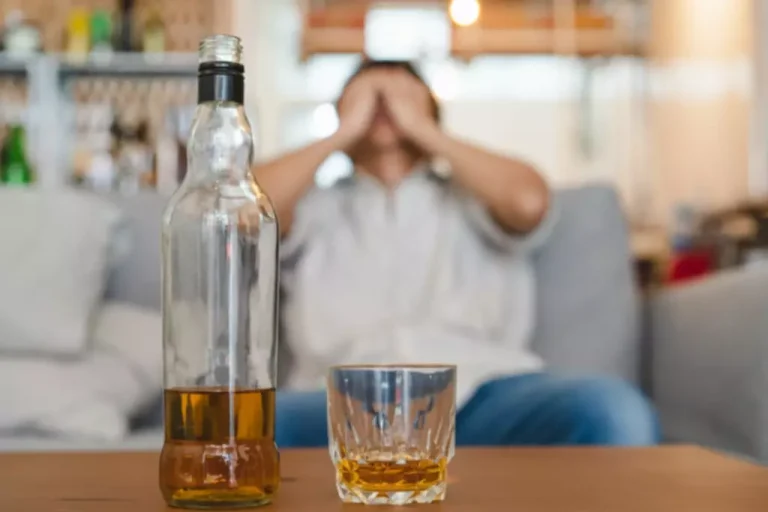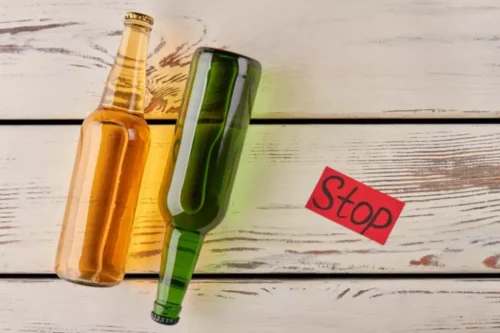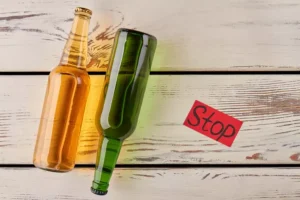
If you drink chronically, this can increasingly become your natural state. Dehydration can also cause physical discomforts, such as headaches, dizziness, and fatigue – all of which can contribute to feelings of unease and distress, which can amplify anxiety. When your body is already experiencing discomfort, it becomes easier for anxious thoughts and sensations to take hold. Only one notable study of COA’s has demonstrated a higher-than-expected risk for these major psychiatric disorders.

Alcohol and Anxiety: Why Drinking Might Be Worsening Anxiety

Support groups are a community of people who face similar challenges. They can be impactful by creating a safe space to share experiences with others who understand what you’re going through. Having access to trained professionals ensures safety throughout detoxification while also laying down a solid foundation for can alcohol cause anxiety attacks ongoing recovery efforts post-withdrawal.
Risk Factors for Developing Both Anxiety and Alcohol Issues
- This article explains the links between alcohol and anxiety and how to manage anxiety disorders and AUD in daily life.
- Restlessness or agitation becomes noticeable, with individuals finding it difficult to sit still or relax.
- While some turn to alcohol as a way to temporarily relieve stress and anxiety, this coping mechanism can backfire.
- The disruption of the brain’s pathways can impede the brain’s ability to regulate moods and behaviors.
- In this opponent process model, the term “addiction” refers to the neurobiological and motivational changes that occur as a consequence of chronic substance use.
Walking, running, yoga, or even swimming can be healthy outlets that combat anxiety and offer stress relief. Additionally, engaging in relaxation techniques such as deep breathing or mindfulness may also help reduce the severity of anxiety symptoms during this challenging time. Common symptoms include restlessness, increased heart rate, and difficulty concentrating, all of which can significantly impact daily life.
- Another proposed theory refers to an expectancy component in people with anxiety who use alcohol.
- At Agape Treatment Center, we understand the unique challenges of living with both anxiety and alcohol use disorder.
- These steps should be considered even if the patient’s depressive disorder is a relatively short-lived alcohol-induced state.
- CBT has taught individuals with generalized anxiety disorder to effectively deal with situations that cause them to feel anxious.
- When someone who has been consuming alcohol heavily for an extended period suddenly stops or significantly reduces their intake, their body reacts in various ways.
How to tell if your ‘hangxiety’ is a sign of an AUD

Psychological symptoms may carry a worse prognosis for alcohol-related problems, and these symptoms must be addressed early in alcoholism treatment. For individuals already diagnosed with anxiety disorders, alcohol can worsen symptoms. While it may seem like a quick fix to manage anxiety in social situations or stressful moments, alcohol can amplify negative feelings in the long term. This can lead to a vicious cycle of increased drinking to cope with worsening anxiety.
- Nausea or stomach discomfort can arise, sometimes leading to digestive issues.
- Disagreement also exists about whether longer term independent treatment for depressive or anxiety diagnoses is required for the alcoholic person to achieve a normal level of life functioning.
- Individuals dealing with addiction and mental illness often face greater challenges in recovery, as each condition can worsen the other.
- First, let’s define terms and explain what we mean by “anxiety,” and how it’s different from everyday stress.
That means that if you have alcohol use disorder, you’re more likely to also have anxiety, and vice versa. Research has found that panic disorder and alcohol use disorder often show up together. There’s also evidence suggesting a direct relationship between the two.

Medical professional hub
At first, drinking alcohol increases GABA activity –– but as the effects of alcohol wear off and your brain tries to balance out neurotransmitters, GABA activity decreases, which can lead to increased anxiety. Not to mention, if you’re a chronic heavy drinker, it can further deplete GABA and impact other neurotransmitters, too. You might have found yourself asking one or more of the following questions, “Does alcohol increase anxiety? Alcohol does overall increase the anxiety symptoms of individuals that suffer from anxiety disorders. The way alcohol changes the levels of serotonin along with various neurotransmitters in the brain can worsen anxiety.
Health topics
- If you’re still feeling anxious after a few weeks, contact your GP surgery.
- In many cases, self-medicating leads to other problems, including worsening symptoms and substance use problems.
- It’s also why your body becomes so flooded with stress and anxiety that you may begin to experience panic attacks.
- Anxiety, on the other hand, is more of an internal response, characterized by persistent, excessive, and often irrational worry about everyday situations.
- This is especially noticeable during withdrawal, as the brain struggles to regain normal functioning without alcohol.
You see, alcohol is a depressant that affects your central nervous system, which means it slows down brain activity and can make you feel more relaxed and carefree initially. However, as you continue to consume alcohol, it can disrupt the balance of chemicals in your brain, including serotonin, a neurotransmitter responsible for regulating mood. Your anxiety after what is alcoholism drinking results from chemical processes in your brain and is not necessarily a reasonable response to your situation or behavior. Get therapy and medical care—just $25 with insurance, no hidden fees— for alcohol recovery, depression, everyday illnesses, and more. While alcohol can have relaxing effects shortly after a few drinks, changes to your brain chemistry can lead to spikes of anxiety as the alcohol wears off.

Comments are closed.